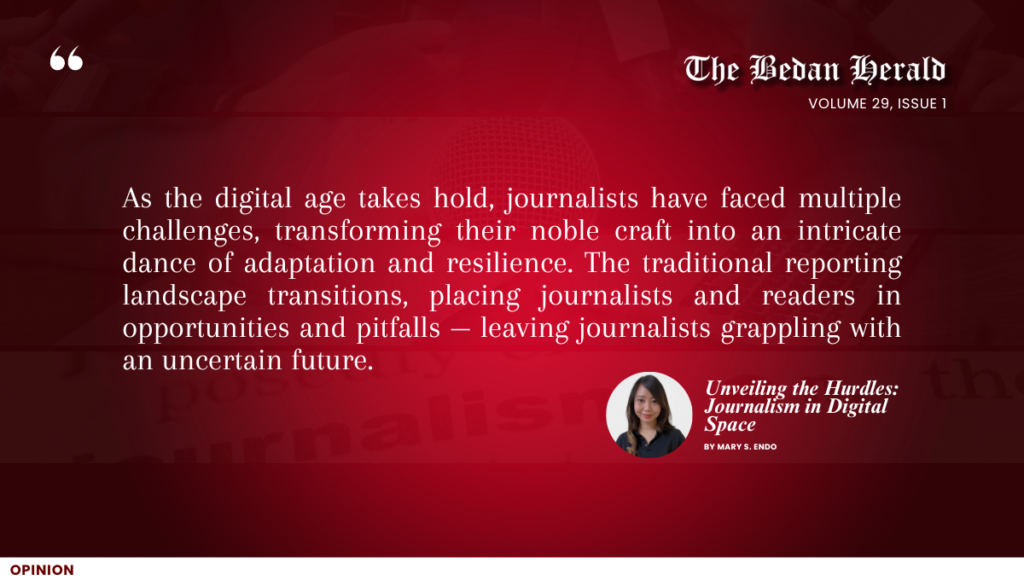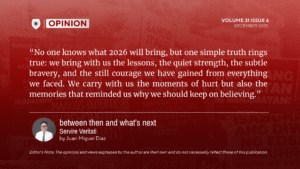By Mary Endo | August 8, 2023
Unveiling the Hurdles: Journalism in Digital Space
JOURNALISM stands on a shifting ground in an era dominated by advancing technology. As the digital age takes hold, journalists have faced multiple challenges, transforming their noble craft into an intricate dance of adaptation and resilience. The traditional reporting landscape transitions, placing journalists and readers in opportunities and pitfalls — leaving journalists grappling with an uncertain future.
Journalists have traditionally held the essential role of being guardians of the truth, ensuring the verification and distribution of reliable information. Social media platforms' creation and citizen journalism's rise have marked a new chapter in information dissemination — resulting in the surge in self-proclaimed experts and the emergence of alternative news sources. The speed at which information now spreads outpaced the traditional fact-checking mechanisms, inflicting false information to permeate public discourse. While this diversity of voices can be empowering, it also opens the floodgates to misinformation, fake news, and sensationalism. Also, the advent of AI-powered language models like ChatGPT has further complicated the landscape of journalism. These sophisticated algorithms can generate human-like text, mimicking the voice and tone of real journalists. While this technology offers immense automation and efficiency potential, it raises ethical questions. Can we trust that the information these algorithms produce is accurate and unbiased?
Digital age has revolutionized how news is consumed, with shorter attention spans leading to the proliferation of bite-sized content and entertainment-focused vloggers, content creators, and influencers. This shift poses a challenge for readers who must discern between reliable sources and misleading information in an era of information overload. As a result, journalists are caught in a delicate balancing act, torn between being the first to report and ensuring accuracy, thereby risking their reputation and credibility. Striking the right balance between speed and precision has become crucial in upholding responsible journalism.
Amidst formidable challenges, the digital age offers journalism significant opportunities to flourish and adapt. The internet's expansive reach empowers journalists to connect with global audiences, amplifying marginalized voices and transcending limitations. Data journalism, interactive storytelling, and fact-checking tools provide invaluable resources for fostering a knowledgeable society. Embracing digital innovation while upholding journalistic integrity and supporting accurate, trustworthy journalism as news consumers are crucial steps in shaping a media landscape that serves as a beacon of truth in our rapidly changing world.
Volume 29 | Issue 1




